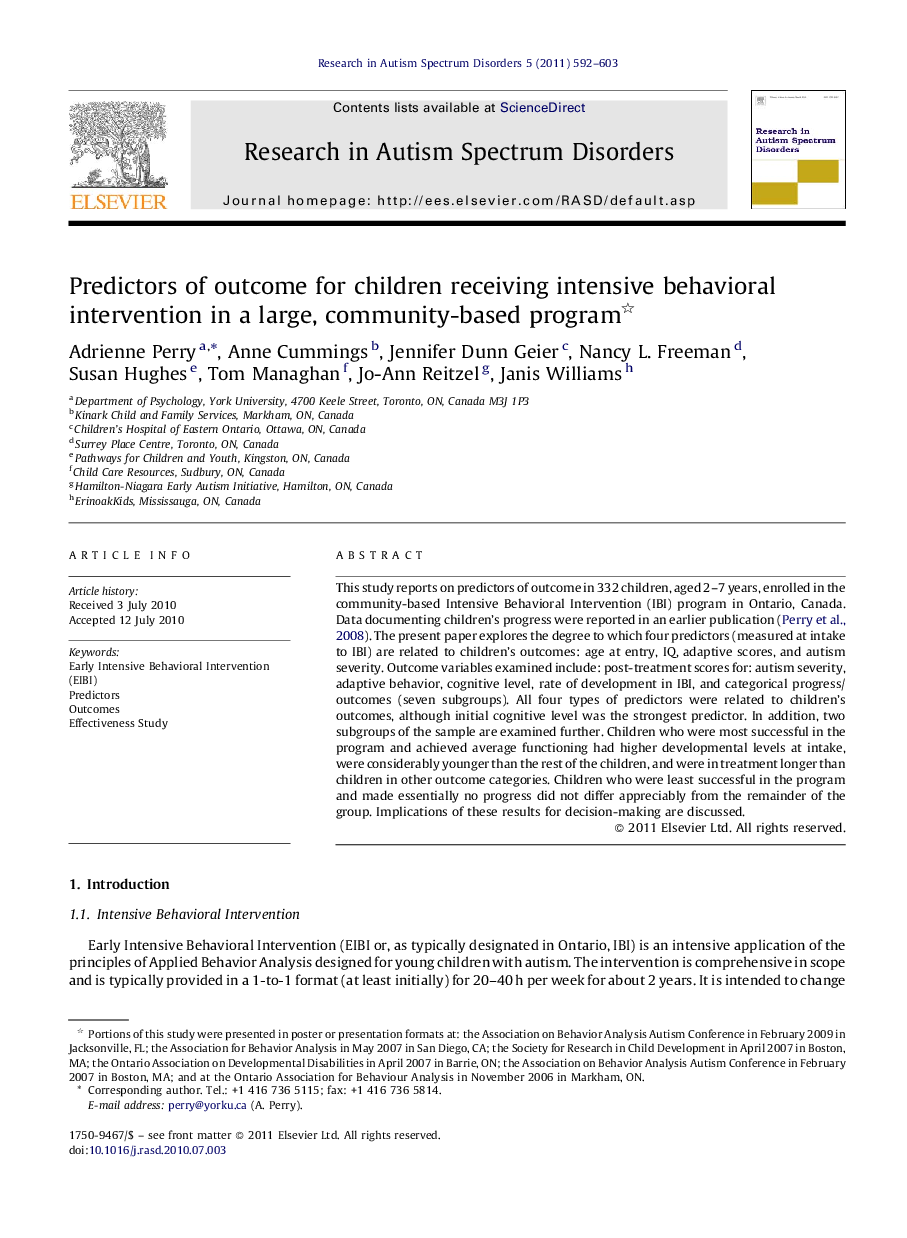| Article ID | Journal | Published Year | Pages | File Type |
|---|---|---|---|---|
| 370876 | Research in Autism Spectrum Disorders | 2011 | 12 Pages |
This study reports on predictors of outcome in 332 children, aged 2–7 years, enrolled in the community-based Intensive Behavioral Intervention (IBI) program in Ontario, Canada. Data documenting children's progress were reported in an earlier publication (Perry et al., 2008). The present paper explores the degree to which four predictors (measured at intake to IBI) are related to children's outcomes: age at entry, IQ, adaptive scores, and autism severity. Outcome variables examined include: post-treatment scores for: autism severity, adaptive behavior, cognitive level, rate of development in IBI, and categorical progress/outcomes (seven subgroups). All four types of predictors were related to children's outcomes, although initial cognitive level was the strongest predictor. In addition, two subgroups of the sample are examined further. Children who were most successful in the program and achieved average functioning had higher developmental levels at intake, were considerably younger than the rest of the children, and were in treatment longer than children in other outcome categories. Children who were least successful in the program and made essentially no progress did not differ appreciably from the remainder of the group. Implications of these results for decision-making are discussed.
